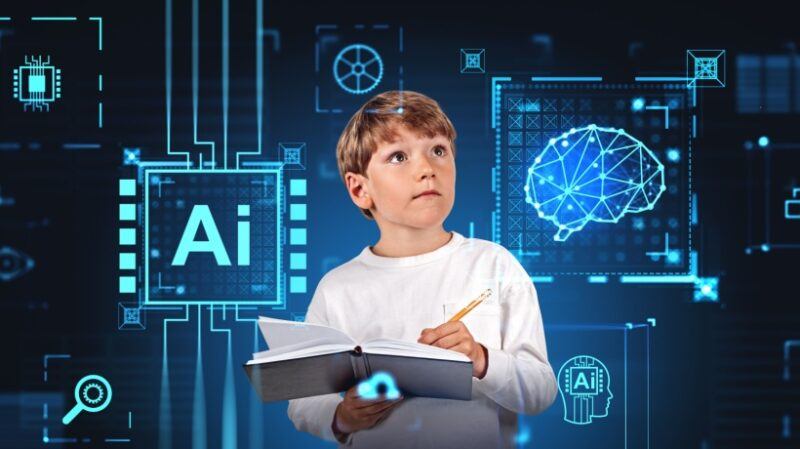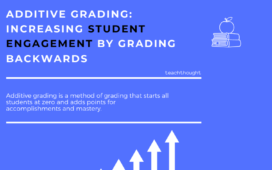
AI Is Revolutionizing K-12 Education
Despite dedicated efforts, the K-12 education system struggles to meet the diverse needs of today’s students. Traditional methods often fail to address individual learning styles and paces, affecting both struggling students and high achievers. A critical issue is the lack of personalization, with curriculums delivering the same material to all students simultaneously. A 2021 study found that 65% of fourth graders read at or below the basic level, causing them to fall further behind as the curriculum progresses. Conversely, gifted students may become disengaged without adequate challenges.
Secondly, today’s students struggle with concentration due to constant digital stimulation. Research shows a decline in attention 10-15 minutes into lectures, leading some institutions to shorten lectures to 15 minutes. However, most classes still last 30 minutes to an hour. Institutions must address partial attention by incorporating interactive content to keep students engaged throughout the entire period.
Furthermore, standardized assessments in K-12 education often fail to capture higher-order thinking skills such as analysis, synthesis, evaluation, and creativity. These tests typically emphasize rote memorization and specific subjects like math and reading rather than fostering profound understanding. Consequently, they may not fully reflect a student’s abilities or interests. Authentic learning, which involves creativity, critical thinking, collaboration, and communication, is not adequately assessed by standardized tests.
Finally, high-stakes testing can induce stress and anxiety in students, with 25-40% of U.S. students suffering from test anxiety. This pressure can negatively impact their mental well-being and test performance, often preventing them from demonstrating their true abilities and leading to inaccurate results.
These are some of the challenges facing K-12 education today. The good news? Advancements in Artificial Intelligence (AI) offer dynamic, data-driven solutions to these challenges. Read on to explore how AI can revolutionize K-12 education!
How Can Artificial Intelligence Improve K-12 Education?
Artificial Intelligence holds enormous promise for enhancing K-12 education. This article will discuss how AI can empower students, teachers, and administrators in advancing education and its accessibility.
Personalized Learning Journey
AI transforms learning into a personalized journey by analyzing student performance data and adapting instructional materials accordingly. Students who receive AI-powered personalized instruction have shown great promise. Globally, the AI in education market, valued at $0.8 billion in 2019, is projected to reach $3.7 billion by 2025, driven by the demand for innovative learning solutions.
AI tools like personalized learning platforms positively impact students’ learning experiences, with nearly half of students and teachers worldwide acknowledging their benefits. These tools offer personalized recommendations for supplementary resources based on students’ interests and weaknesses, enhancing understanding, retention, and engagement.
AI-Powered Applications For Classrooms
AI-powered classroom applications encompass a wide range of tools and technologies designed to enhance the learning experience for students. Some examples include:
1. Intelligent Tutoring Systems (ITSs)
An ITS diagnoses student strengths and weaknesses, providing targeted instruction and practice exercises. They adjust question difficulty and offer hints or explanations, addressing misconceptions with personalized practice problems. This leads to better understanding and mastery of concepts, with studies showing higher scores afterwards. ITS also offers 24/7 support, fostering deeper learning.
2. Intelligent Digital Assistants
Digital assistants like Siri, Alexa, or Google Assistant use Natural Language Processing (NLP) to help students with questions, definitions, and educational content. They provide instant access to information, empowering students to explore topics independently and enhance their understanding through interactive dialogue.
3. Educational Games And Simulations
AI-powered games and simulations engage students in immersive learning experiences, simulating real-world scenarios and facilitating virtual experiments or collaborative problem-solving. This gamification increases motivation, knowledge retention, and critical thinking skills.
4. Intelligent Textbooks
Intelligent textbooks use AI to offer customized content and interactive features, such as personalized quizzes and real-time feedback. These textbooks adapt to individual learning preferences, enhancing engagement and comprehension, and enabling teachers to monitor progress effectively.
5. Automated Grading Systems
AI-driven evaluation automates grading for various assessments, saving teachers time and increasing efficiency. AI tools also enhance plagiarism detection through pattern recognition. As educators shift to personalized competency tests and project-based learning, AI provides innovative solutions for creating tailored assessments and reduces student stress through stealth assessments embedded in digital games.
AI In School Counseling
School counselors play a crucial role in students’ well-being, but often face limited resources. AI can support counselors and improve student outcomes through various tools:
- AI chatbots
Powered by Natural Language Processing, chatbots provide immediate support for basic concerns, available anytime and anywhere. This ensures students receive timely help and allows counselors to focus on more complex issues. - Emotional distress detection
AI analyzes student communications (text messages, online posts) to detect key words or vocal patterns indicating emotional distress or suicidal ideation. Tools can use Machine Learning (ML) to flag high-risk messages for timely intervention. In September 2021, San Marcos Unified School District in California used an AI tool to identify five potential self-harm instances within the first week of school. - Career counseling
AI analyzes student data on interests and goals to recommend career paths and educational opportunities, particularly benefiting students in underserved communities. AI tools offer mock interview simulations and resume optimization tips to help students prepare for college or careers.
AI For Students With Special Educational Needs
AI can significantly support students with special educational needs by offering tailored solutions that enhance their learning experiences. Intelligent tutors, textbooks, and wearable assistive technologies are examples of AI tools that can greatly benefit students. These technologies customize lessons based on individual interests and requirements, maintaining engagement.
For instance, students with dyslexia can use text-to-speech (TTS) technology to access a broader range of digital text, while AI-powered speech recognition can aid students with visual impairments in reading and note-taking. Apps can help recognize faces and identify objects, promoting independence. Additionally, AI-enhanced hearing aids assist students with hearing impairments by distinguishing primary sounds from background noise. AI solutions ca also help students to interpret social situations, fostering better social integration. As AI advances, it holds immense potential to create inclusive learning environments catering to diverse student needs.
AI In Learning Analytics
Furthermore, AI revolutionizes learning analytics by enabling educators to collect, measure, analyze, and report data about students and their interactions with educational material. This comprehensive approach equips teachers with valuable insights into student performance and educational backgrounds empowering them to make informed decisions about teaching strategies.
With access to robust learning analytics, educators can identify learning difficulties more effectively and offer targeted support to students. Moreover, learning analytics offer individualized insights for students, allowing them to monitor their own attention levels, pace, and mastery of subjects. AI also facilitates real-time evaluation of student engagement by analyzing cognitive, behavioral, and physical cues, thus enabling educators to intervene in a personalized manner. By estimating attention levels and detecting mind wandering, AI helps gauge the effectiveness of instruction and predicts whether new strategies will capture students’ interest. Additionally, AI-powered tools utilize video footage to assess student engagement, offering valuable feedback for teacher training programs and instructional improvement.
Challenges Of AI Integration In K-12 Education And How The Gap Can Be Bridged
Integrating AI in K-12 education promises immense potential for personalized learning and improved student outcomes. However, several hurdles need to be addressed to ensure equitable and successful implementation.
Challenge 1: Bridging The Digital Divide
Not all students have equal access to technology and reliable internet connections, a disparity that can exacerbate educational inequities if AI-powered tools become the norm.
Solution: Championing Accessibility For All Learners
- Low-bandwidth AI applications
Develop AI applications that function effectively even on slower internet connections, ensuring that students in underserved communities are not excluded from the benefits of AI-powered learning. - Offline learning options
Enable students to download content for anytime-anywhere learning, addressing limited internet access.
Challenge 2: Stakeholder Resistance
Educators, parents, and students may be hesitant to embrace AI in classrooms due to concerns about job displacement, privacy, and AI bias. A 2023 survey found that 96% of U.S. K-12 teachers had no professional AI training, and 55% worried about its educational impact. Despite 77% acknowledging AI’s potential benefits, only 18% frequently use it, 34% use it occasionally, and 20% never use it, indicating a gap between positive attitudes and actual AI integration in education.
Solution: Collaboration, Transparency, And Building Trust
- Educator empowerment
View AI as a tool to empower educators, rather than to replace them. AI handles tasks like grading and personalized instruction, freeing up teachers’ time for more complex aspects like curriculum development and individualized support. - Transparency and open communication
Prioritize transparency by providing clear explanations about data collection, storage, and use.
Challenge 3: Data Quality
The effectiveness of AI learning models relies heavily on the quality of data they are trained on. Biased or incomplete data sets can lead to inaccurate assessments and perpetuate existing educational inequalities.
Solution: Building A Foundation Of High-Quality, Diverse Data
- Subject matter expertise
Curate high-quality, diverse and accessible learning material for training AI models, ensuring fair and accurate results for all students. - Rigorous data validation processes
Implement rigorous quality assurance for data validation processes to identify and address any potential biases in the data.
Challenge 4: Data Infrastructure
Schools may lack the necessary IT infrastructure to support AI integration, including data storage capabilities and robust security measures.
Solution: Scalable And Secure Solutions
- Minimal infrastructure investment
Develop AI solutions that require minimal additional infrastructure investment, making AI integration accessible for schools with limited resources. - Cloud-based solutions with robust security
Use cloud-based solutions to address data storage concerns and ensure that industry-standard security protocols are followed.
Challenge 5: Lack Of Vision
Successful AI integration requires a clear vision of how AI can benefit the learning environment. Without a well-defined purpose, schools may struggle to implement AI effectively.
Solution: Partnering For Strategic AI Integration
- Needs assessment
Collaborate with schools to conduct thorough needs assessments, identifying areas where AI can add the most value. - Goal-setting and measurement
Work closely with stakeholders to establish clear, measurable goals for AI integration aligned with the school’s overall educational vision. - Expert support
Offer expert support to schools during implementation to ensure educators and administrators have the resources they need to use AI tools effectively.
By addressing these challenges, schools can harness the power of AI to create the most personalized, engaging, and effective learning environment for all students. A steadfast commitment to inclusivity, collaboration, and high-quality data solutions paves the way for a future where AI in K-12 education empowers every student to reach their full potential.















